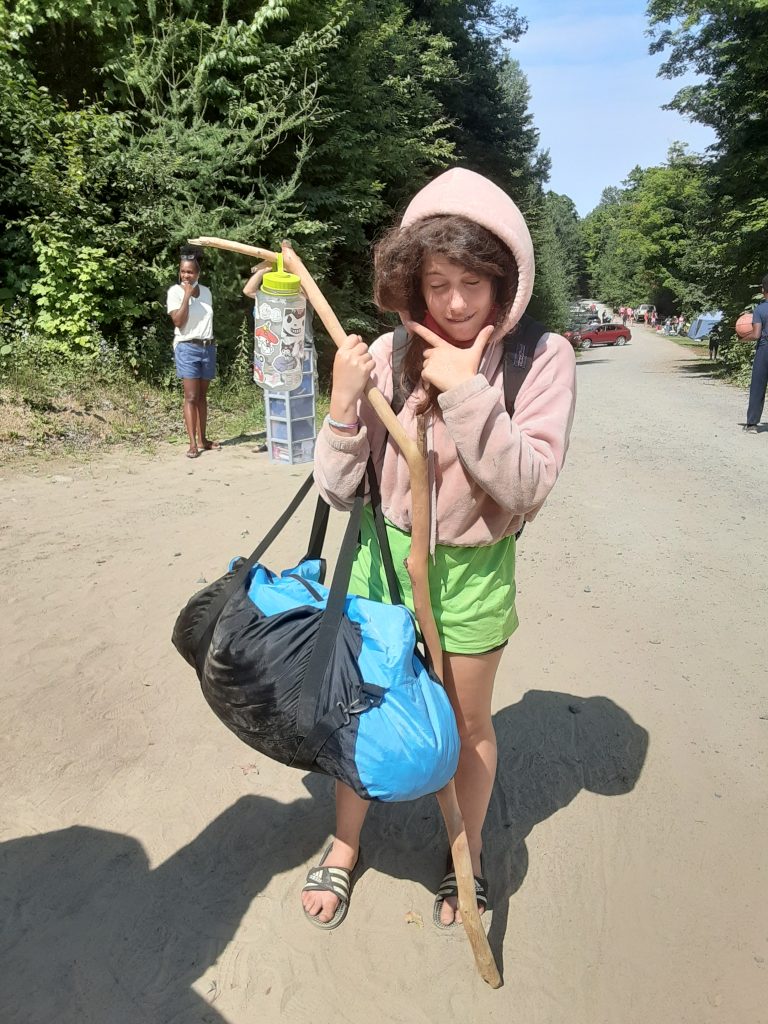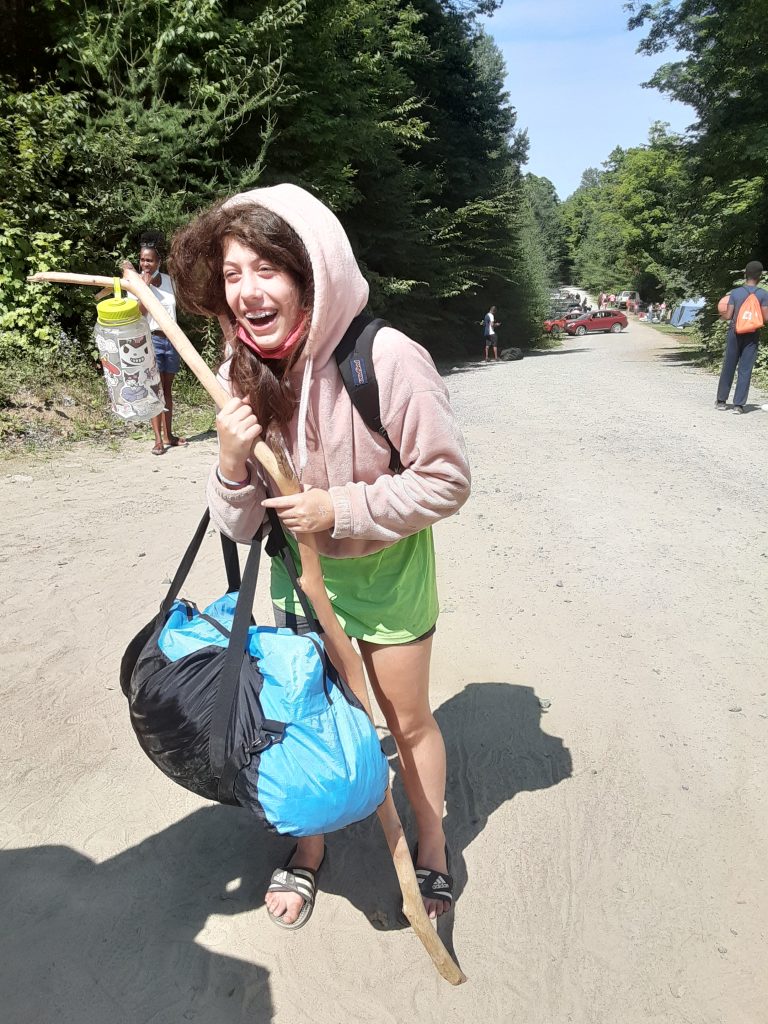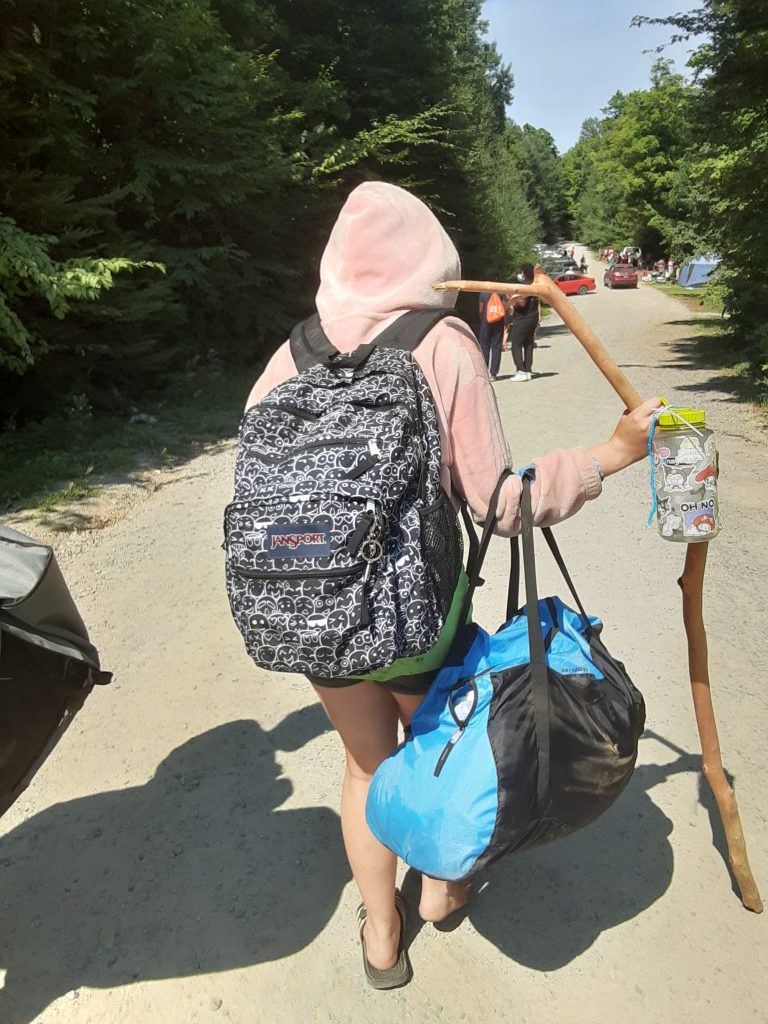On Friday we made the longish drive from Toronto to Cardiff ON to pick up our daughter from summer camp. After having missed out on so many ordinary things during the pandemic — months of in-person school, over a year of swim training, art classes, time with friends — she was eager to return to Camp Can-Aqua for another summer. In 2020, like all sleepaway camps in Ontario, her camp was closed, but this year it reopened with pandemic-era protocols, a welcome return to normalcy for campers.
All the way up highway 28 we breathed in the sweet smells of late summer: the aromatic air of hemlock and pine forests; the cool fresh water of trout streams. Near Burleigh Falls the Canadian Shield announced itself in the form of rock cuts rich with spectacular granitic and gneissic intrusions, a striking contrast to the slow spirals of hawks and the steady drone of cars on the highway.
On the way up the road there were also a few suggestions of the approaching fall: maples showing just a hint of colour; crickets loud in the tall dry grass. A row of aspens, their leaves in continual motion, whispering like running water or the onrushing currents of a storm.
In a cloud of dust we pulled up the graded gravel road into camp and waited, part of a long line of cars in the cool dusk of the woods, before emerging into the bright sunlight of the camp, and then it was all happy reunions, final farewells, a last look at the lake, and then off for the long drive back home, through forest and lake, then farmland and, finally, suburb and city. In the car our daughter told us stories about camp. Cabin hijinks. Canoe trips. A fish that ate a frog. Diving off the high board. Canoe swampings, waterskiing mishaps, lake muck, counsellor romances. After an hour of excited storytelling she drifted off and slept until we had nearly reached the city, awakening disoriented somewhere on the 401, still on Haliburton time.
Some parents send their kids to the same camps they went to because it is (or they hope it will become) family tradition to do so. I didn’t go to camp as a child (although I have treasured memories of family trips to provincial parks when I was very young). My husband (whose forbears went to very different kinds of camps) spent his childhood being displaced from continent to continent before, as a new Canadian, getting to know the country by spending his adolescent summers attending wilderness canoe camp. By sending our child to a classic Canadian summer camp, we made a very conscious decision to give her something we never had.
Our daughter takes going to camp for granted. She is grateful, of course, in the way all good kids are grateful, but has no context for the alternative. Her life is about openings and opportunities, a perpetual present lit brightly by plans for the near future: fun with friends, schoolwork, swim meets, adding to her art portfolio, booking cat-sitting gigs, learning to skateboard. Today, still only half unpacked from camp, she has taken the subway downtown with friends to go back-to-school shopping.
All the pent-up feelings of nostalgia are mine. Watching country roads unspool in the rearview mirror, the trees recede, all those lakes vanishing into their thickets. The sun’s azimuth a little lower each day; summer fruit hanging heavy in the trees, propelling me to dig out the canner to preserve in jars as much of the summer as possible. Downloading all the photos shared by my daughter’s camp: all those cabins, canoes, cliffs; the loons; woodsmoke; lake water.
Looking at these pictures makes me feel so much longing: for these summers to never end; for my daughter’s future to remain brightly lit; for my dead mother to be able to see her beautiful granddaughter, so long and so graceful, so much like her, even down to the curve of her eyebrows and the roguish gleam in her wicked grin.
Amid the jumble of clothes tangled in my daughter’s duffle bags are souvenirs from camp. Camp crafts, skills badges, interesting rocks, a clay shooting target retrieved from the bottom of the lake, drawings from friends, notes. Her camp walking stick, bark peeled back to expose the pale pine cambium. After sorting all the laundry and finding homes for her camp treasures we take the duffle bag outside and turn it over, grit and bits of leaves falling out, tumbling over the side of the front porch, spangled in the golden light of summer’s end.


